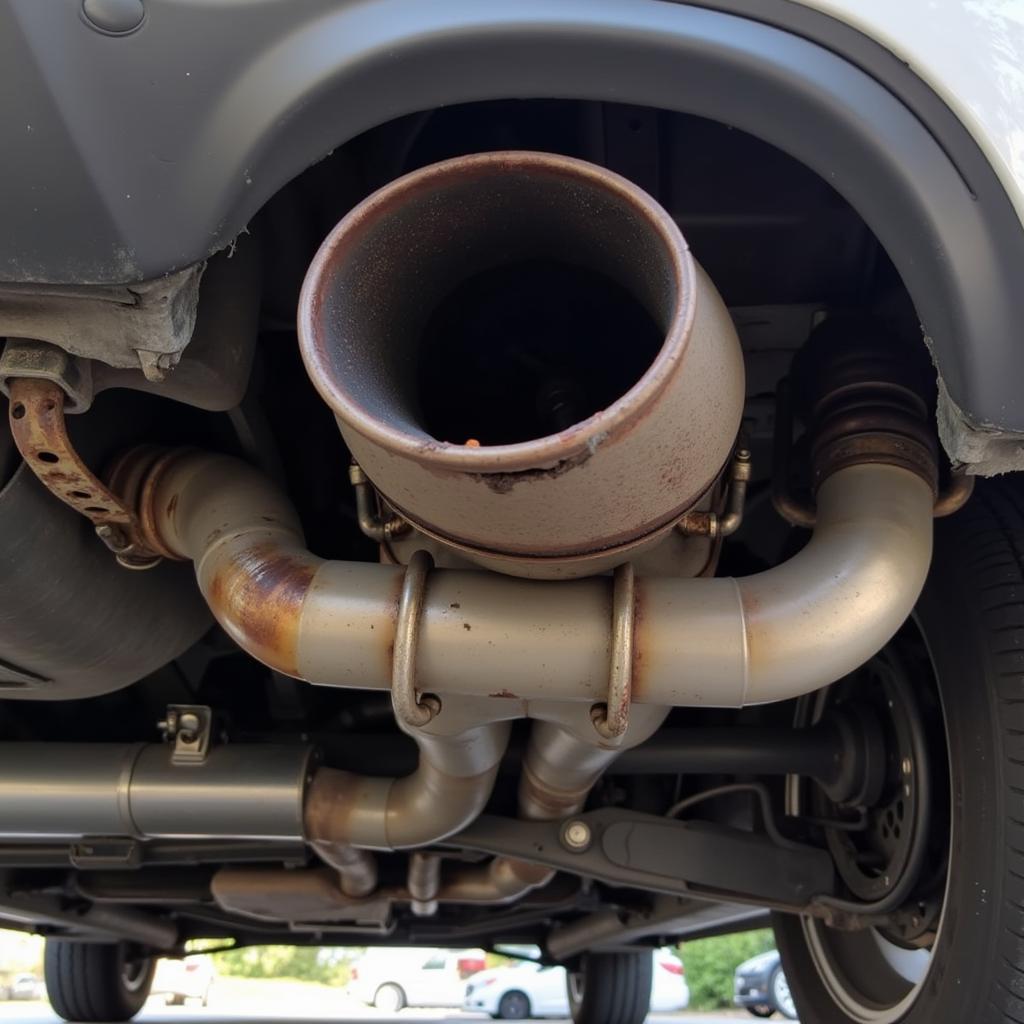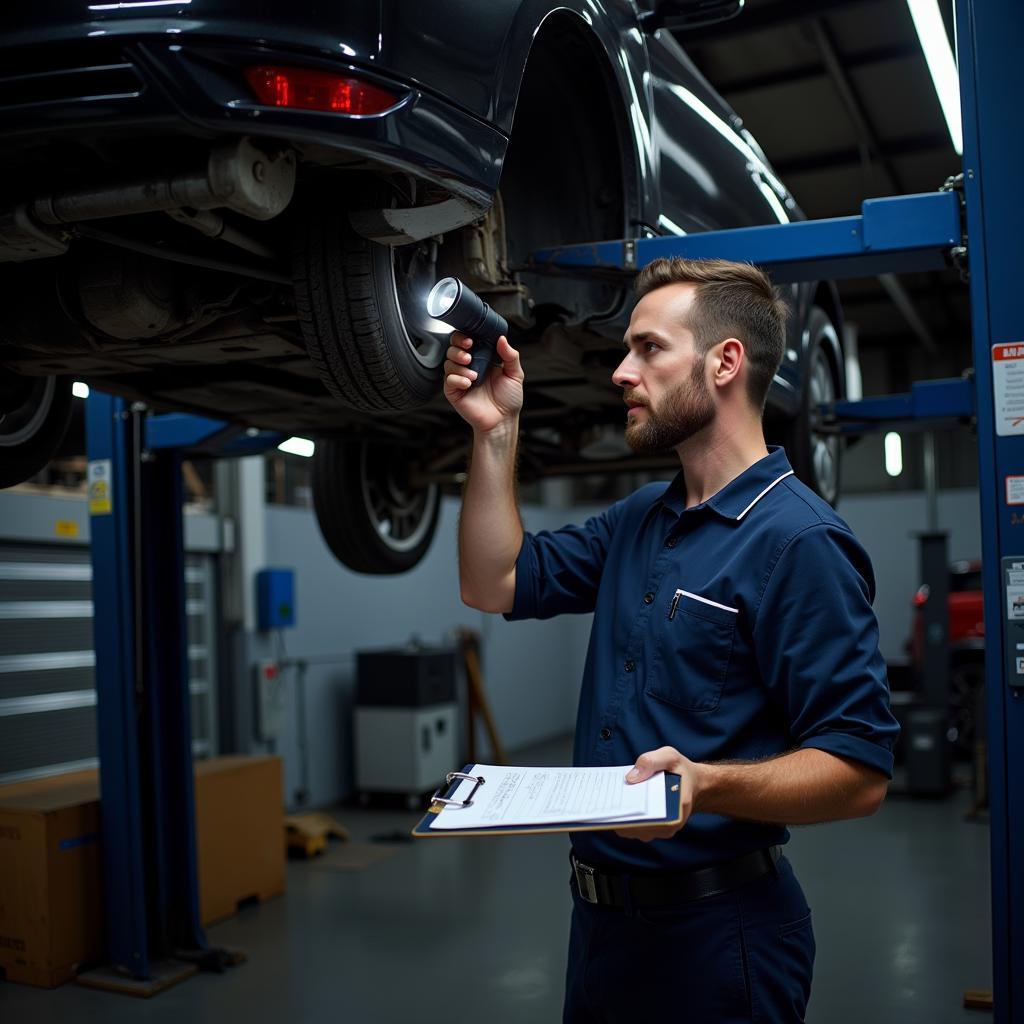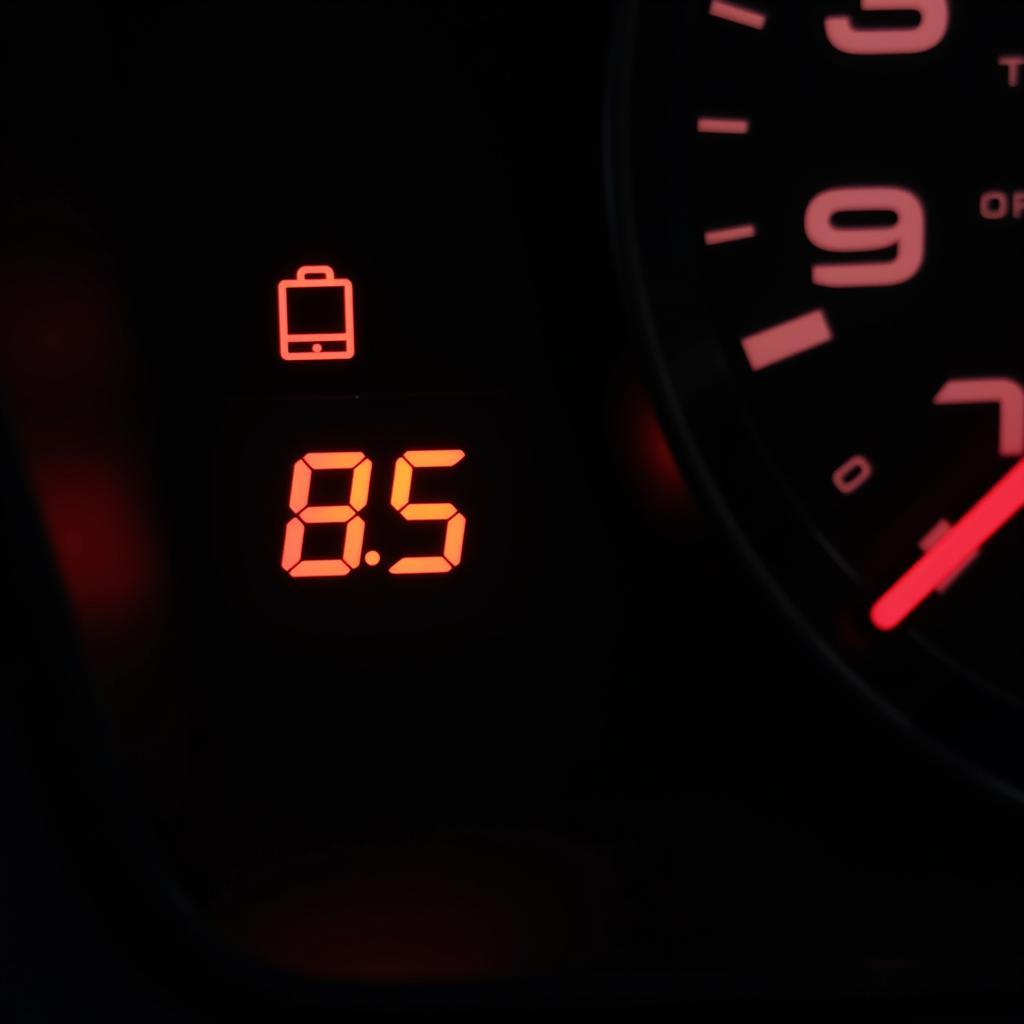A loud popping noise in your car after driving can be a frustrating and concerning experience. It can be alarming, especially when it occurs without any prior indication of trouble. This sound usually points towards a problem in your vehicle’s suspension, exhaust system, or engine. However, understanding the specific source of the popping noise can help you pinpoint the issue and take the necessary steps to fix it.
Common Causes of Popping Noise in Cars
The popping noise you hear might be caused by a variety of factors, each requiring a different approach to fix. Here are some of the most frequent causes:
Suspension Issues
- Worn Out Suspension Bushings: These rubber components connect your suspension to the car’s chassis, and when they wear out, they can cause a popping noise, especially when driving over bumps.
- Loose Control Arm Bolts: If the bolts attaching your control arms to the chassis become loose, they can create a popping sound as the suspension moves.
- Failing Shock Absorbers: As shock absorbers deteriorate, they can lose their ability to dampen the vibrations from the road, resulting in a popping noise.
Exhaust System Problems
- Loose Exhaust Hanger: Exhaust hangers hold the exhaust system in place, and if they loosen, the system can rattle or create a popping noise.
- Leaky Exhaust Manifold: Cracks or leaks in the exhaust manifold can cause a popping noise, especially when accelerating.
- Clogged Catalytic Converter: A clogged catalytic converter can restrict exhaust flow, causing a popping noise and reduced engine performance.
 Car exhaust system components
Car exhaust system components
Engine-Related Issues
- Pre-Ignition: This occurs when fuel ignites prematurely in the combustion chamber, causing a loud popping or knocking sound.
- Detonation: Similar to pre-ignition, detonation happens when the fuel-air mixture explodes rather than burns smoothly, resulting in a popping noise.
- Broken Engine Mount: Engine mounts support the engine and dampen vibrations. If they break, the engine can move excessively, generating a popping noise.
Troubleshooting a Popping Noise in Your Car
To diagnose the source of the popping noise, you’ll need to consider its frequency, location, and the circumstances under which it occurs.
- Frequency: Does the popping noise happen frequently or only occasionally?
- Location: Where does the noise seem to be coming from – the front, rear, or under the car?
- Circumstances: Does the popping noise happen when you accelerate, brake, turn, or drive over bumps?
Here’s what you can do:
- Inspect the Suspension: Visually examine the suspension components, looking for any signs of wear, tear, or loose bolts.
- Check the Exhaust System: Look for any leaks, cracks, or loose hangers in the exhaust system.
- Listen for Engine Sounds: Pay attention to any unusual engine noises, especially when accelerating or decelerating.
 Mechanic inspecting car with checklist
Mechanic inspecting car with checklist
Expert Tip: “If you’re not comfortable with car maintenance, it’s always a good idea to consult a professional mechanic for a proper diagnosis and repair.” – John Smith, Certified Automotive Technician
When to Seek Professional Help
If you’re unable to identify the source of the popping noise or the problem seems more serious, it’s important to consult a qualified mechanic. They can use specialized tools and equipment to pinpoint the issue accurately and perform the necessary repairs.
Common Questions About Loud Popping Noises in Cars
What if the popping noise is accompanied by other symptoms?
A popping noise often indicates a more significant underlying issue. If you notice other symptoms like smoke, loss of power, or unusual vibrations, it’s crucial to address the problem immediately.
 Car dashboard with warning lights illuminated
Car dashboard with warning lights illuminated
Can I ignore a popping noise?
Ignoring a popping noise could lead to more serious problems down the line. The issue might worsen over time, leading to costly repairs or even a dangerous driving situation.
What are the potential risks of driving with a popping noise?
Driving with a popping noise could potentially lead to:
- Damage to other car components: A loose exhaust hanger, for example, could damage the exhaust system further or even detach entirely.
- Reduced performance: A clogged catalytic converter or a leaking exhaust manifold could lead to reduced power and fuel efficiency.
- Safety concerns: A failing suspension system could compromise your vehicle’s stability, making it dangerous to drive.
Contact Us for Professional Help
If you’re facing a loud popping noise in your car, we’re here to help. Our team of experienced technicians is ready to diagnose and repair the problem quickly and effectively.
AutoTipPro
+1 (641) 206-8880
500 N St Mary’s St, San Antonio, TX 78205, United States
Don’t let a popping noise in your car turn into a major problem. Get in touch with us today!





Leave a Reply